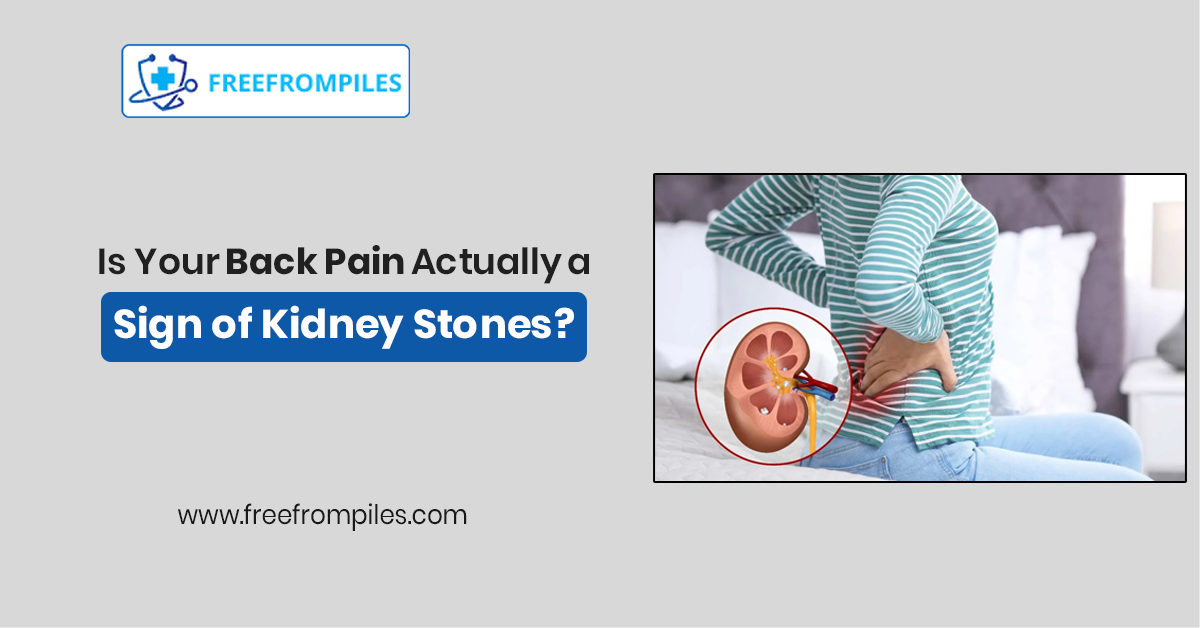Is Your Back Pain Actually a Sig...
- Oct 31, 2025

Back pain is common, but if it’s sharp, persistent, and radiates into your abdomen or groin, it may be a kidney stone. A lot of people think that they have regular back pain, but it can be a sign of kidney stones that delay treatment and cause a misdiagnosis. Kidney stones occur when minerals in urine crystallize and combine to form crystals or hard masses, which then obstruct the flow of urine through the kidneys, causing intense pain. Recognizing the variation is important so you can get medical assistance as soon as possible to avoid complications such as infections or kidney damage.
When a kidney stone begins to journey through the urinary system, it can cause pain that can become quite severe and generally radiates from the back proximally down toward the lower abdomen or pelvis. This pain feels a lot different than just regular muscle pain — it’s sharp, intense, and can come in waves. Even when someone is at rest or has tried massaging the area, the pain associated with a stone doesn’t typically improve, and as the stone moves, so does the pain — from between your side and back (below your ribs) or even to your lower abdomen.
If you’re experiencing back pain and have any of these, well, the issue may be a kidney stone instead of just your typical-joe muscle situation.
Kidney stones can happen to anyone, but they are more likely to occur if you’re not drinking enough water, have a high-sodium diet, or have too much calcium being excreted from the kidneys. Here are some common culprits and habits that add to the problem:
Dehydration: If you don’t drink enough water, the urine is more concentrated with minerals and therefore more likely to form stones.
High-salt or high-protein diet: Consuming large amounts of salt (a form of sodium) or protein (red meat in particular) can increase levels of calcium and uric acid in your urine.
Family history: If you have a close relative who has had kidney stones, you are more likely to develop them.
Medical problems: Any medical problem that causes itching either in the genital area or systemwide, as seen with obesity, digestive or urinary tract infections.
Some medications: Certain drugs affect the balance of minerals and water in the body, which can lead to the development of kidney stones.
A urologist or nephrologist will start by examining you physically, and might recommend tests such as an ultrasound, a CT scan, or urinalysis to find out the size and location of the stone.
Treatment can vary, depending upon findings included:
Hydrations and Medications: Smaller stones often move out of the body naturally when a person drinks more water and takes pain medication.
SWL (shock wave lithotripsy): Large stones are reduced to small pieces by high-energy waves.
Ureteroscopy: A thin scope is inserted through the bladder and up the urethra to remove or crush stones in the urinary tract.
Percutaneous Nephrolithotomy: A procedure that uses a scope placed through the back to remove large stones from the kidney without an incision.
Lifestyle modifications after treatment, such as hydration, decreased salt intake, and a proper diet, can prevent future stones.
You can lower your risk of stroke by taking these steps:
Dr. Madhav Mayank Sharma is one of the most well-known and trusted Kidney Stone Specialist in Bharatpur. He specializes in laser-based treatment & therapies for piles, fissures& other proctology disorders. He stands out with his high-end healthcare services, providing fuss-free treatment. He owns and operates the Pradeep Hospital at Bharatpur which offers quality and friendly care with straightforward answers for all your medical needs.
“Pay attention to your body — pain is not punishment but information.”
Prevent back pain if you can, because it can be your kidney stones doing their which is begging for a healthier, pain-free life.